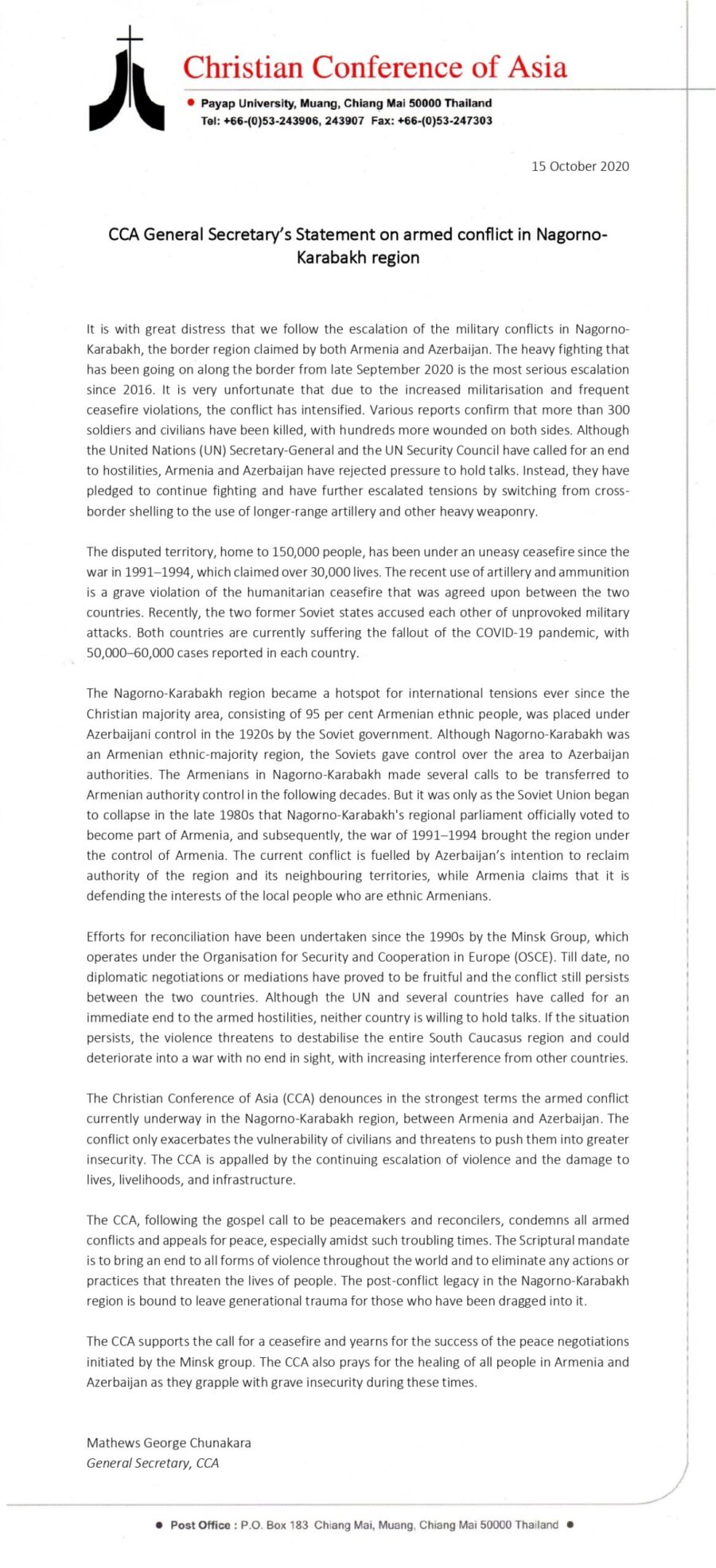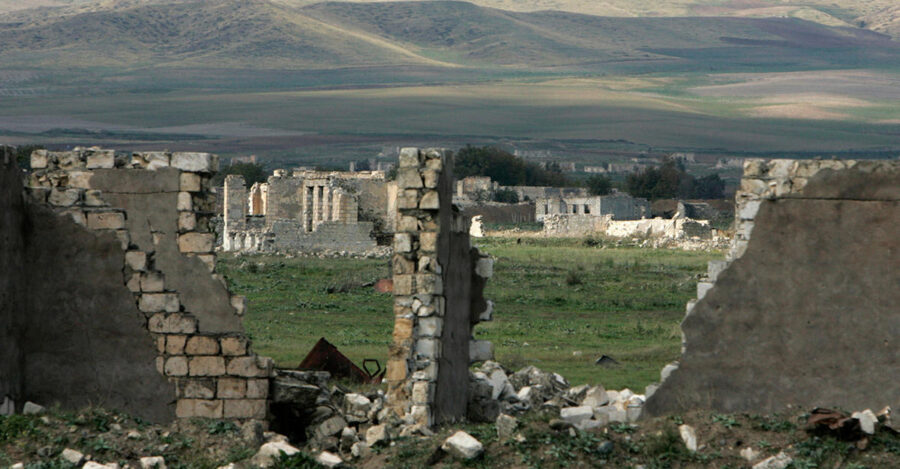CCA General Secretary denounces armed conflict in Nagorno-Karabakh region
CHIANG MAI: The General Secretary of the Christian Conference of Asia (CCA), Dr Mathews George Chunakara, denounced in the strongest terms the ongoing armed conflict between Armenia and Azerbaijan in the disputed territory of Nagorno-Karabakh. The region, home to 150,000 people, has already witnessed over 300 casualties comprising both soldiers and civilians.
In a statement released by the CCA General Secretary, Dr Mathews George Chunakara said, “The CCA, following the gospel call to be peacemakers and reconcilers, condemns all armed conflicts and appeals for peace, especially amidst such troubling times. The Scriptural mandate is to bring an end to all forms of violence throughout the world and to eliminate any actions or practices that threaten the lives of people.”
Dr Mathews George Chunakara also stated, “The CCA supports the call for a ceasefire and yearns for the success of the peace negotiations initiated by the ‘Minsk Group’. The CCA also prays for the healing of all people in Armenia and Azerbaijan as they grapple with grave insecurity during these times.”
The Nagorno-Karabakh region became a hotspot for international tensions ever since the Christian majority area, consisting of 95 per cent Armenian ethnic people, was placed under Azerbaijani control in the 1920s by the Soviet government.
The full text of the CCA General Secretary’s Statement on the armed conflict in the Nagorno-Karabakh region can be found below:












